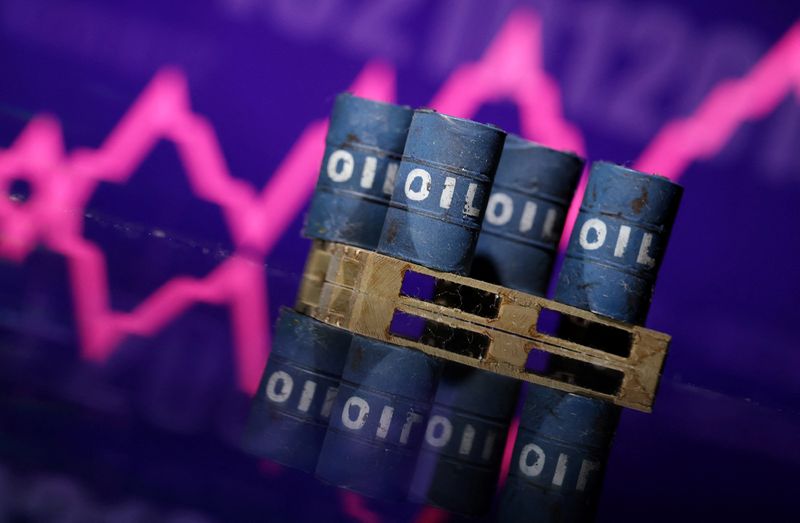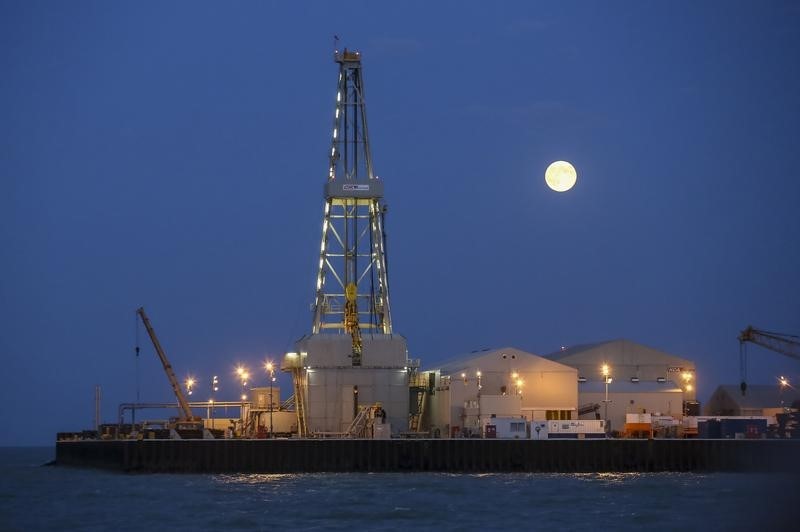By Laila Kearney
NEW YORK (Reuters) -Oil prices held steady on Thursday as investors grappled with mixed signals on crude demand, with concerns about a U.S. economic slowdown coupled with rising expectations that the Federal Reserve would soon cut interest rates.
Futures settled at $85.11 per barrel, rising 3 cents, while U.S. West Texas Intermediate (WTI) crude fell 3 cents to settle at $82.82 per barrel. Both benchmarks were up in the previous trading session.
The number of Americans filing new claims for unemployment benefits rose more than expected last week, while initial claims for state unemployment benefits increased by 20,000 to a seasonally adjusted 243,000 for the week ended July 1.
The data strengthened the case for the Fed to accelerate rate-cutting plans, which could lead to more spending on oil.
“I believe that healthy expectations of a Fed rate cut in the not so distant future will limit the negative impact,” Tamas Varga of oil broker PVM told Reuters.
Fed officials said Wednesday that the U.S. central bank is closer to a rate cut given the improved trajectory of inflation and a labor market that is more balanced, potentially paving the way for a cut in borrowing costs in September.
U.S. economic activity expanded at a mild to modest pace from late May to early July, with companies expecting slower growth, according to a report released by the Fed on Wednesday.
However, rising unemployment claims also signaled an economic easing that could reduce demand for crude and keep oil prices from heading higher, said John Kilduff, a partner at Again Capital in New York.
“The reality on the ground is that we have a slowing economy that could potentially soften crude oil demand,” Kilduff said.
Despite government data on Wednesday showing inventories fell by 4.9 million barrels last week, more than analysts forecast in a Reuters poll, weak U.S. gasoline demand kept oil prices from rising, Kilduff said. [EIA/S]
Economic growth in China, the largest importer of crude oil, also weighed on prices. Chinese leaders signaled Thursday that Beijing would stay the course on economic policy, although few concrete details were revealed. Together, these events have helped undermine investors’ hopes for a boost to boost consumption in the world’s second-largest economy.
The European Central Bank kept interest rates unchanged as expected and gave no hints on its next move, arguing that domestic price pressures remain high and inflation will remain above target well into next year.

A mini-OPEC+ ministerial meeting in early August is unlikely to recommend a change to the group’s oil production policy, which includes a plan to phase out a layer of crude production cuts from October, three sources told Reuters.
One of three OPEC+ sources, all of whom declined to be named, said the meeting would serve as a “pulse check” on the health of the market.


